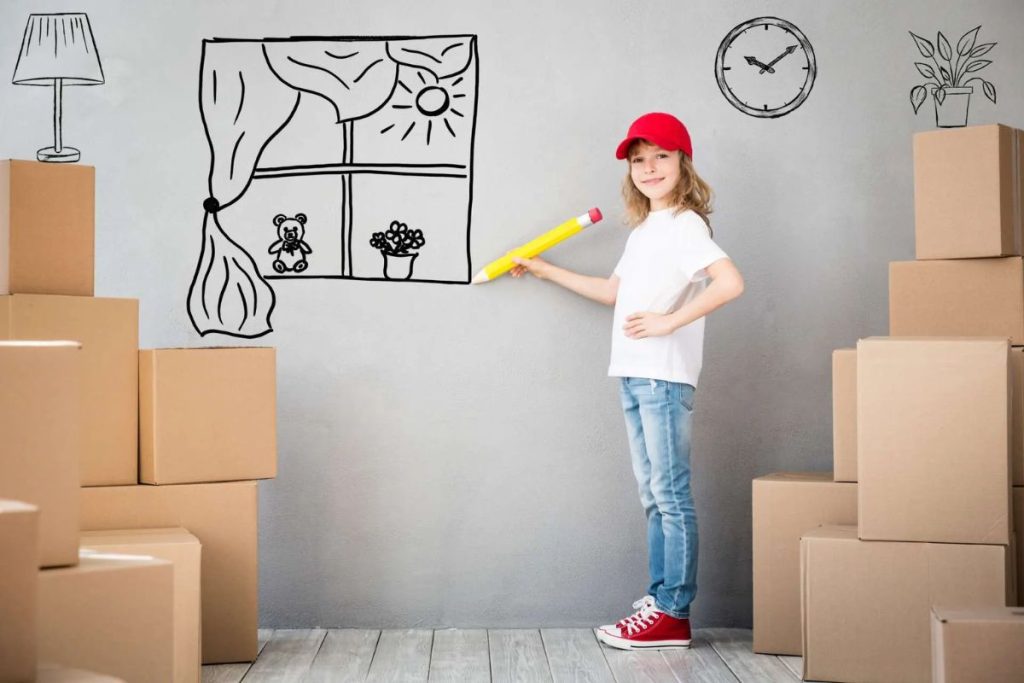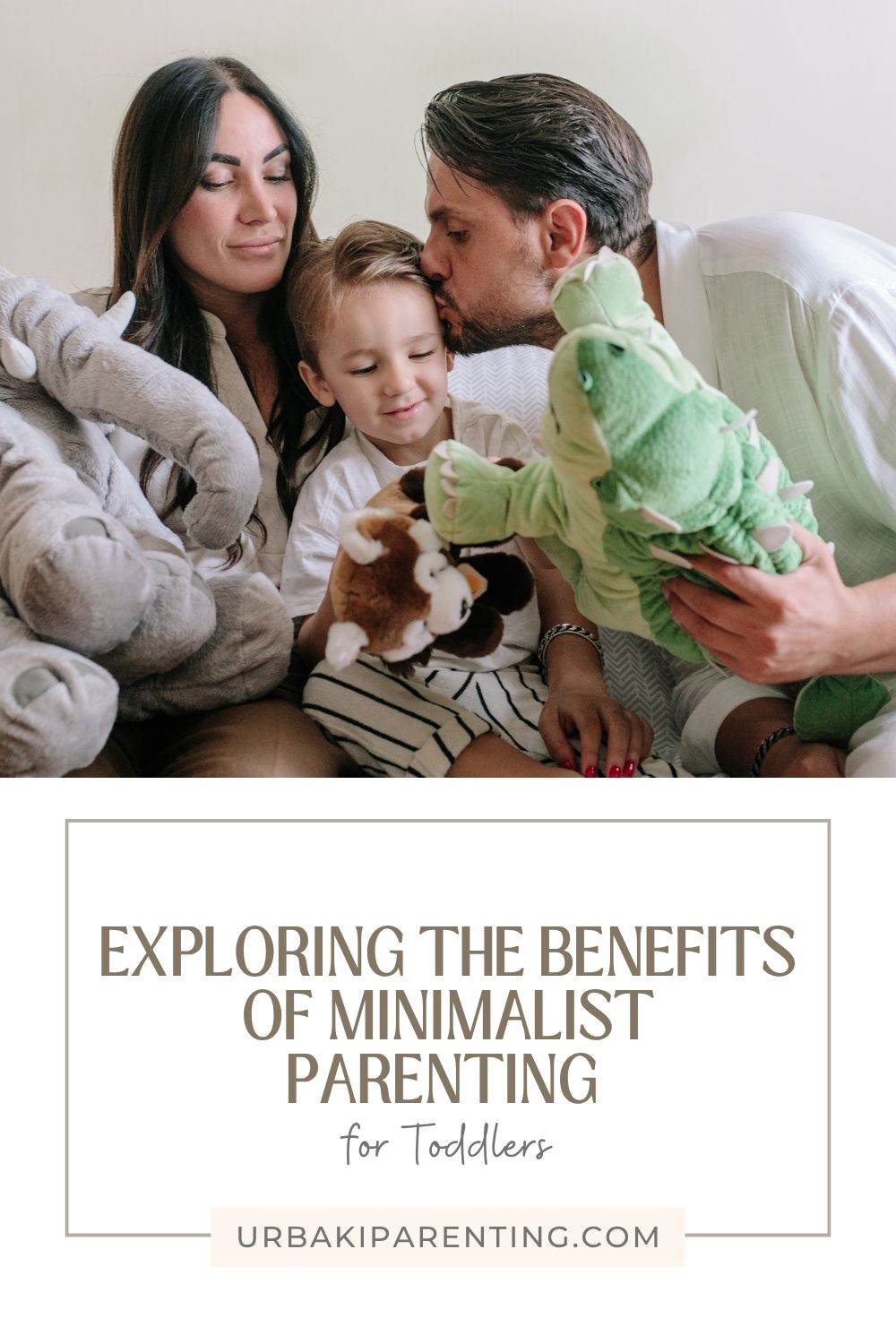- Urbaki Parenting
- Toddlers
- Exploring the Benefits of Minimalist Parenting for Toddlers
Exploring the Benefits of Minimalist Parenting for Toddlers

Parenting can often feel overwhelming, especially with the constant pressure to do more, buy more, and provide more.
However, an emerging approach that’s gaining popularity is minimalist parenting, which focuses on simplifying the environment and the daily routines to foster healthier, more intentional relationships with children.
In this article, we will explore the benefits of minimalist parenting for toddlers and how adopting this mindset can create a positive impact on both parents and children.
What Is Minimalist Parenting?
Minimalist parenting is based on the idea of stripping away the excess—whether it’s physical possessions, commitments, or even expectations—so that families can focus on what truly matters.
For toddlers, this approach means reducing clutter, simplifying activities, and spending quality time together, rather than relying on material possessions or overstimulation to create happiness.
The Core Principles of Minimalist Parenting
Less is more: Focus on what’s truly necessary and meaningful.
Intentional living: Prioritize values over consumerism and distraction.
Quality over quantity: Emphasize deep, meaningful interactions rather than quantity-based activities.
In the context of toddlers, minimalist parenting isn’t just about reducing clutter—it’s also about fostering a calm, nurturing environment where children can thrive emotionally, cognitively, and socially.
 The Benefits of Minimalist Parenting for Toddlers
The Benefits of Minimalist Parenting for Toddlers
Adopting a minimalist approach to parenting can have several benefits for toddlers, helping them grow into confident, grounded individuals. Here are some of the most significant advantages:
1. Encouraging Imagination and Creativity
One of the key benefits of minimalist parenting is the way it nurtures imagination and creativity in toddlers. When children are surrounded by fewer toys and distractions, they are more likely to use their creativity to engage with their environment.
Rather than relying on electronic devices or overly complex toys, toddlers often find joy in simple activities such as building with blocks, drawing, or exploring nature.
With fewer options, toddlers can develop their problem-solving skills and creativity through more open-ended play. This fosters independent thinking and allows their imaginations to flourish.
2. Reducing Overstimulation
Toddlers are naturally curious and absorb everything around them. However, constant exposure to an overabundance of toys, noise, and media can lead to overstimulation. This may manifest as restlessness, irritability, or difficulty focusing.
By adopting minimalist parenting, parents create a calmer environment with fewer distractions. This encourages toddlers to focus on their immediate surroundings, engage with fewer objects at a time, and better manage their emotions.
A simpler environment can help toddlers feel more grounded and focused, reducing the likelihood of tantrums and stress.
 3. Fostering Independence and Responsibility
3. Fostering Independence and Responsibility
In a minimalist home, toddlers are encouraged to take responsibility for their belongings. With fewer toys and items to manage, they learn the importance of organization and responsibility early on. By focusing on the items they cherish and use most, toddlers develop a sense of ownership and independence.
Additionally, minimalist parenting encourages parents to involve their toddlers in daily chores and routines. This sense of participation in the family’s household tasks can lead to greater self-confidence and a stronger sense of contribution to the family unit.
4. Building Stronger Family Connections
Minimalism is not just about the physical environment—it also affects the emotional climate within the home. By prioritizing quality time over accumulating things, minimalist parents tend to spend more focused time with their toddlers.
This can mean fewer distractions during playtime, more meaningful interactions at mealtimes, and intentional moments of connection throughout the day.
For example, instead of having a pile of toys around, parents might choose to spend time reading together or having conversations with their toddlers. These intentional moments foster stronger emotional bonds, helping children feel more secure and valued.
5. Teaching the Value of Experiences Over Things
A minimalist parenting approach helps toddlers learn that experiences are more valuable than material possessions. This is an important lesson that will serve them well throughout their lives.
By emphasizing time spent outdoors, exploring nature, or engaging in family activities, toddlers start to understand that memories and shared moments are far more enriching than new toys or gadgets.
This mindset can lead to a more sustainable lifestyle for the whole family, as it reduces the temptation to purchase things they don’t need and encourages experiential learning.
 Tips for Implementing Minimalist Parenting with Toddlers
Tips for Implementing Minimalist Parenting with Toddlers
While the idea of minimalist parenting may sound appealing, it can be challenging to implement, especially for new parents who are used to the constant stream of advice, toys, and activities available. Here are some practical tips to help you embrace minimalist parenting with toddlers:
1. Declutter Your Home
Start by decluttering your living space. Keep only the toys that your child uses regularly or that contribute to creative, open-ended play. Donate or store away items that aren’t necessary. This will create more space for your toddler to explore and focus on what’s important.
2. Simplify Your Schedule
Minimalist parenting isn’t just about reducing physical clutter; it’s also about simplifying your schedule. Avoid over-scheduling your toddler with too many activities or commitments. Instead, create a routine that includes time for rest, play, and exploration.
3. Limit Screen Time
In today’s digital world, it can be easy to rely on screens to occupy toddlers. However, excessive screen time can hinder a child’s development. Instead, focus on interactive play and outdoor activities that engage their senses and help them develop essential life skills.
4. Focus on Meaningful Connections
Prioritize time spent with your toddler over material possessions. Whether it’s cooking together, going on a walk, or reading a book, these moments of connection are invaluable in building strong, lasting relationships.
 5. Practice Mindful Parenting
5. Practice Mindful Parenting
Being mindful means being fully present with your child. Engage with them without distractions, give them your undivided attention, and approach parenting with intention and thoughtfulness.
Simplifying Parenting to Enrich Your Toddler’s Life
By adopting minimalist parenting, you’re not only creating a simpler environment but also fostering a deeper connection with your toddler. Fewer possessions lead to more meaningful experiences, improved creativity, and stronger family bonds.
As new parents, embracing this approach can help you navigate the complexities of early childhood development with less stress and more joy, ensuring a balanced, enriched life for both you and your toddler.


 The Benefits of Minimalist Parenting for Toddlers
The Benefits of Minimalist Parenting for Toddlers 3. Fostering Independence and Responsibility
3. Fostering Independence and Responsibility Tips for Implementing Minimalist Parenting with Toddlers
Tips for Implementing Minimalist Parenting with Toddlers 5. Practice Mindful Parenting
5. Practice Mindful Parenting
You may also like